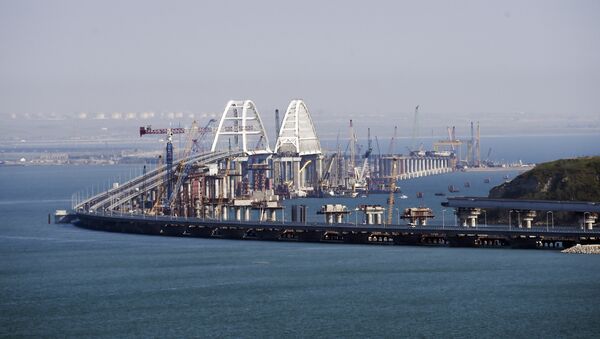"There are discussions about the situation in the Sea of Azov, but there are no [discussions on] sanctions. Some countries want to raise this issue, others do not. At this point there is no consensus among the 28 countries on this issue," the source said, asked whether sanctions in connection with the incident would be discussed next week.
READ MORE: Russia Allegedly Sends Sub to Kerch Strait as Tensions With Ukraine Soar (PHOTO)
The discussion now is primarily not about whether sanctions are necessary, but about actions needed to reduce tensions in the Sea of Azov and promote a dialogue between the two parties so that a decision can be reached, he noted.
"That is, you need to agree on measures to support Ukraine and send a number of strong signals, because if everyone comes to the meeting with proposals that others will not support, what signal will we send then?" the source wondered.
The main task is to determine a common position, he concluded.
On Monday, foreign ministers of EU member states will conduct talks on the issue in Brussels, and an informal dinner with Ukrainian Foreign Minister Pavlo Klimkin will be also held.
Russian President Vladimir Putin has said that the incident was a provocation prepared in advance as a pretext to introduce martial law in Ukraine. Putin said the provocation could be linked to Poroshenko's low approval rating ahead of the presidential campaign set to start in late December.
READ MORE: US May Send Warship to Black Sea Amid Kerch Strait Tensions — Reports
In response to the clash, Ukrainian President Petro Poroshenko signed a decree declaring martial law in several Ukrainian regions located near the Russian border, and the coasts of the Black Sea and the Sea of Azov.



